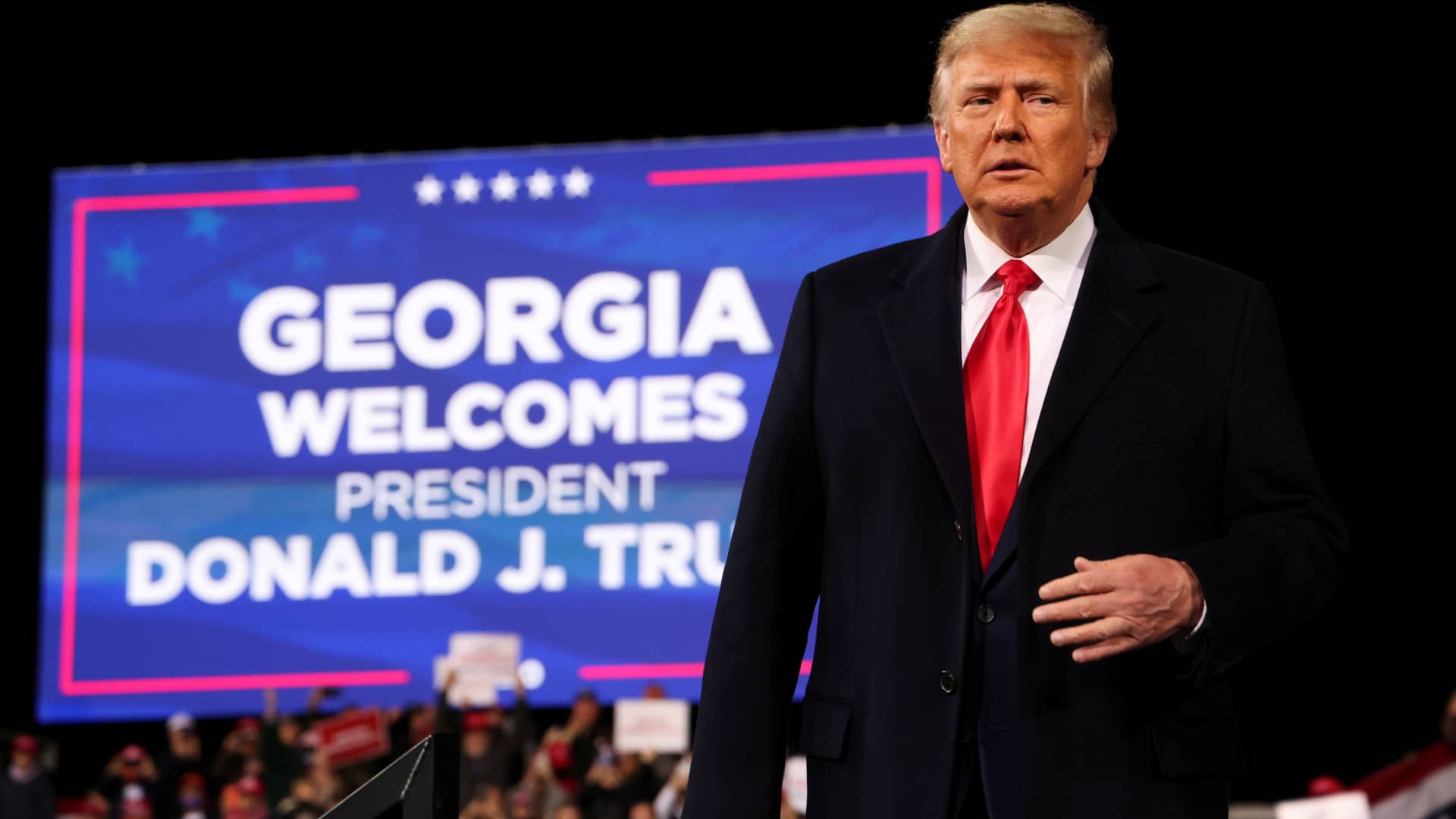
The special grand jury that will help investigate former President Donald Trump for possible criminal meddling in Georgia’s 2020 presidential election was seated Monday after a selection process that took less than 90 minutes.
The probe employing the grand jury, seated in Atlanta, is seen by some observers as representing the biggest threat of criminal prosecution that Trump currently faces.
While still president, and waiting for Congress to confirm President Joe Biden‘s Electoral College victory, Trump, in a Jan. 2, 2021, phone call, urged Georgia Secretary of State Brad Raffensperger to “find” him enough votes to overturn Biden’s win in that state.
That phone call — and contacts other people made with the state’s attorney general and a top federal prosecutor in Georgia — are being eyed in the criminal investigation. Fulton County District Attorney Fani Willis is overseeing the probe.
Grand jury selection began Monday morning in the Fulton County Courthouse in downtown Atlanta.
A total of 200 potential grand jurors were summoned for the selection process. Out of that group, 23 jurors and three alternates were quickly picked for the panel, which can meet for up to one year.
The grand jury, which will have the power to subpoena testimony from witnesses and to obtain evidence, will not start taking testimony until next month. The lag will give jurors time to arrange their schedules and to wait until the May 24 primary in the state. Raffensperger and other potential witnesses are on the ballot.
The panel will not have the power to issue indictments but can make recommendations to Willis about criminal prosecutions.
A second grand jury, in New York state court in Manhattan, that was investigating Trump for possible criminal conduct in his business reportedly was allowed to expire Friday without issuing charges. The grand jury wrapped up despite claims by a former prosecutor with that probe that there was evidence Trump was guilty of numerous felonies.
The Manhattan district attorney’s office has said its investigation of the former president continues, and suggested other grand juries could be used to take testimony about him and the Trump Organization.
But the resignations of two prosecutors from the probe, and a third prosecutor’s reported decision to step back from active involvement in the case, have dramatically lowered expectations of criminal charges against Trump in New York.
In Georgia, a judge in January granted Willis’ request to impanel a grand jury to investigate Trump after Willis said she “received information indicating a reasonable probability” that Georgia’s 2020 election “was subject to possible criminal disruptions.”
Willis said that information included reports that people “associated with these disruptions” had contacted the state’s secretary of state, its attorney general, and the United States Attorney for the Northern District of Georgia.
The contacts alluded to what were seen to be part of a pattern by Trump and his allies to try to reverse Biden’s popular vote wins in several swing states, among them Georgia. Those states gave the president his margin of victory in the Electoral College, the body that facilitates the winner of U.S. presidential elections.
“All I want to do is this: I just want to find 11,780 votes,” Trump told Raffensperger in the January 2021 call. It came four days before a riot of Trump supporters disrupted a joint session of Congress that was meeting to certify the Democratic presidential win.
Raffensperger had indicated to Willis’ office that he would not participate in an interview with criminal investigators unless he is subpoenaed, the DA wrote a judge in January.
Trump has said his call with Raffensperger “was perfect, perhaps even more so than my call with the Ukrainian president, if that’s possible.”
Trump in that 2019 call with Ukrainian President Volodymyr Zelenskyy urged him to announce an investigation into Biden and Biden’s son Hunter. The call occurred as Biden was the favorite to win the Democratic Party’s presidential nomination in 2020.
Trump was withholding congressionally approved military aid from Ukraine at the time of the phone call. He was impeached by the House of Representatives over the call, but was acquitted at trial in the Senate.




